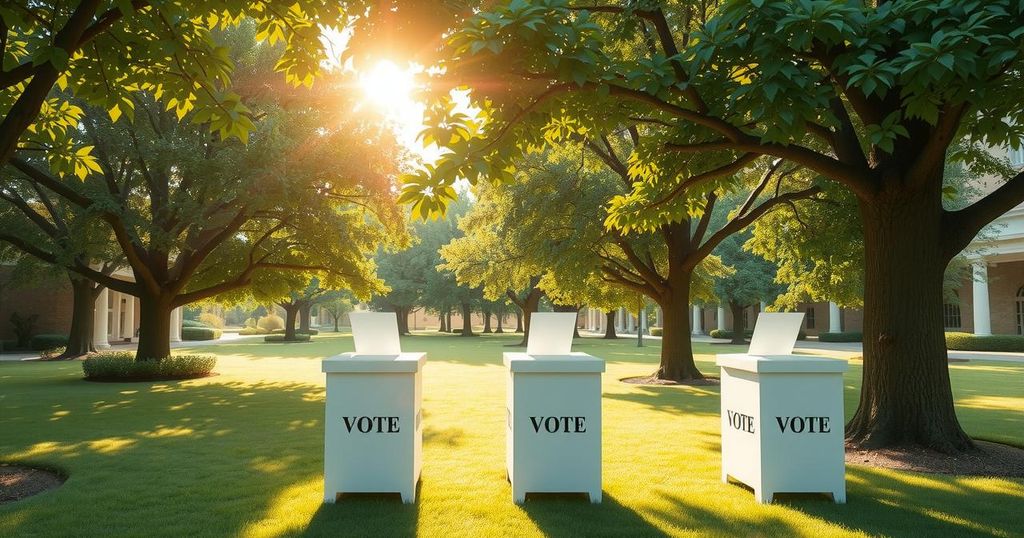Ghana’s General Election: A Test Amidst Economic Crisis
Ghana prepares for a general election amidst its worst economic crisis in a generation. Over 18.7 million voters are registered, yet dissatisfaction prevails regarding the leading candidates. Vice President Mahamudu Bawumia faces off against former President John Mahama in an election framed by economic challenges, escalating inflation, and issues like illegal gold mining, raising concerns about the future of Ghana’s democracy and governance.
Ghana stands at a critical juncture as voters prepare for a general election against a backdrop of the worst economic crisis in a generation. Over 18.7 million citizens are registered to vote, yet there is skepticism regarding the two leading candidates and their ability to address the nation’s issues. Once hailed for its democratic resilience, Ghana is now grappling with soaring inflation and job scarcity, prompting 82% of the populace to express concern about the nation’s trajectory, according to an Afrobarometer poll.
Despite having twelve candidates vying for the presidency, the election has devolved into a two-candidate race. Vice President Mahamudu Bawumia represents the ruling New Patriotic Party (NPP), which has struggled to mitigate the economic downturn. Conversely, former President John Dramani Mahama leads the National Democratic Congress (NDC), having been ousted in 2016 for failing to fulfill economic promises. Although their parties claim different orientations, analysts assert that their proposals lack significant distinction.
Additionally, the election includes the appointment of 276 members of parliament. Currently, both the NPP and NDC hold 137 seats each in the 275-member legislature, with one independent member commonly allied with the ruling party. In their final campaign rallies, Bawumia vowed to enhance the ongoing economic stabilization efforts while Mahama pledged to “reset” Ghana’s democratic governance and economic strategies across various sectors, emphasizing the need for systemic rejuvenation.
Despite an energizing election atmosphere marked by political rallies and public displays, anxiety pervades discussions about the uncertain economic future. Ghana’s economy recently defaulted on substantial foreign debt amidst ongoing crises that have increased the costs of essential goods. Although inflation dropped from a shocking 54% last year, many citizens have yet to see improvements in their daily expenses.
The pervasive issue of illegal gold mining, locally termed galamsey, has surfaced as a vital campaign topic, exacerbating discontent among voters. Despite being the continent’s leading gold producer, illegal mining has escalated amid economic hardship, leading to significant environmental degradation. This persistent issue raises pivotal questions about governance and the effectiveness of the current administration’s environmental policies.
In conclusion, as Ghana prepares for its pivotal election amid a severe economic crisis, the public’s expectations for substantive change remain low. With escalating inflation and social unrest, the roles of the two leading candidates — Bawumia and Mahama — will be critically examined. The outcome will significantly impact the nation’s direction and the future of its democracy, as Ghana strives to navigate this challenging period.
Original Source: apnews.com




Post Comment